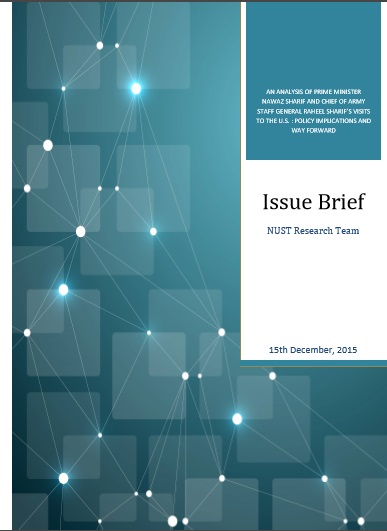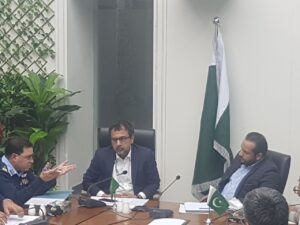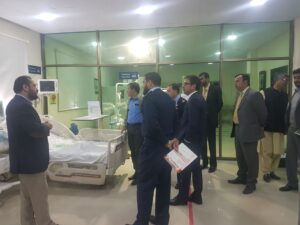The U.S and Pakistan have had an enduring bilateral relationship since 1947. This partnership has now expanded outside the traditional security realm in recognition of the multifaceted issues facing both countries through people-to-people contacts and parliamentary exchanges. There have been many ups and downs in the relationship between the two countries but diplomatic ties were negatively affected after Osama Bin Laden was found and killed in Abbottabad. However, they seem to be gaining warmth, recently.
Prime Minister Nawaz Sharif’s visit to US from October 20 to 23, 2015, reinforced his commitment to this enduring US-Pakistan partnership. The visit highlighted important areas of mutual cooperation between the two countries for strengthening relations and working together on critical issues. The working groups discussed during the visit included education, science and technology, energy, economics and finance, counterterrorism, strategic stability and nuclear non-proliferation and security. Previous strategic dialogues between National Security Advisor and Secretary of State also involved discussions on the above mentioned groups and emphasized that these are areas critical to the growth of bi-lateral relations between the two countries.
Army Chief General Raheel Sharif embarked on a five-day long visit to the United States from November 15th- 20th, 2015. This was the second time General Raheel visited the US in this calendar year and it was met with scepticism regarding a rift between the civil and military leadership. However recently in a conference at the Punjab House, Chaudhry Nisar has denied all claims of a rift and has claimed that the Army Chief proceeded to the US visit only after consultation with Prime Minister. 1 Given the historical imbalance of power between the two institutes, it wouldn’t be the first time that the military has attempted to encroach into the civilian domain and tried to cement the perception that military has the ultimate wielding power when it comes to security polices of the country. Hence, it is important to analyze whether such statements serve as a pre-emptive measure to de-escalate any potential clash or are a genuine sign of collaboration between the military and civilian leadership of Pakistan.
General Raheel’s visit to the United States has drawn special attention because meetings at such a high level are a rarity for any military chief visiting the US. The Army Chief held extensive discussions with key figures of the Obama administration, including Vice President Joe Biden, Foreign Secretary John Kerry, US Army Chief of Staff General Mark Milley and CIA Director John Brennan2 and he also addressed the intelligence and armed services committees of the American Senate. He was given full protocol during the visit.
The first part of this brief discusses the implications for Pakistan based on the Pak – U.S joint statement and the steps being taken for furthering this enduring partnership, while the second highlights the key themes of General Raheel Sharif’s visit. for more details please view pdf





